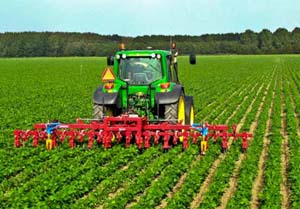 |
|
| Appunti universita |
|
 |
|
| Appunti universita |
|
| Visite: 1093 | Gradito: |
Leggi anche appunti:Le imposte diretteLe imposte dirette L'imposta sul reddito delle persone fisiche: dall'IRPEF all'IRE L'IRPEF, introdotta Nomina e funzionamento del Comitato dei creditoriNomina e funzionamento del Comitato dei creditori La Legge Fallimentare (Regio Decreto La gestione strategica delle imprese industrialiLA GESTIONE STRATEGICA DELLE IMPRESE INDUSTRIALI L'impresa - valore La creazione |
 |
 |
WTO: LET'S TALK ABOUT THIS ORGANISATION
The World Trade Organization (WTO) is an international organization that establishes rules for international trade through consensus among its member states. It also resolves disputes between the members. The World Trade Organization is the most powerful legislative and judicial body in the world. The organization's headquarters are located in Geneva, Switzerland. There are 150 member states in the organization.
|
|
|
|
|
|
|
Formation |
1 January 1995 |
|
Headquarters |
Geneva, Switzerland |
|
Membership |
150 member states |
Mission:
The WTO states that its aims are to increase international trade by promoting lower trade barriers and providing a platform for the negotiation of trade and to their business.
Principles of the trading system The WTO discussions should follow these fundamental principles of trading
A trading system should be free of discrimination in the sense that one country cannot privilege a particular trading partner above others within the system, nor can it discriminate against foreign products and services.
A trading system should tend toward more freedom, that is, toward fewer trade barriers (tariffs and non-tariff barriers).
A trading system should be predictable, with foreign companies and governments reassured that trade barriers will not be raised arbitrarily and that markets will remain open.
A trading system should tend toward greater competition.
A trading system should be more accommodating for less developed countries, giving them more time to adjust, greater flexibility, and more privileges.
Formal Structure:
Highest level: Ministerial Conference
The topmost decision-making body of the WTO is the Ministerial Conference, which has to meet at least every two years. It brings together all members of the WTO. The Ministerial Conference can make decisions on all matters under any of the multilateral trade agreements.
Second level: General Council
The daily work of the ministerial conference is handled by three groups: the General Council, the Dispute Settlement Body, and the Trade Policy Review Body. All three consist
of the same membership - representatives of all WTO members - but each meets under different rules.
The General Council - is the WTO's highest-level decision-making body in Geneva, meeting regularly to carry out the functions of the WTO. It has representatives (usually ambassadors or equivalent) from all member governments and has the authority to act on behalf of the ministerial conference which only meets about every two years. The council acts on behalf on the Ministerial Council on all of the WTO affairs.
The Dispute Settlement Body - Made up of all member governments, usually represented by ambassadors or equivalent.
The Trade Policy Review Body (TPRB) - the WTO General Council meets as the Trade Policy Review Body to undertake trade policy reviews of Members under the TRPM. The TPRB is thus open to all WTO Members.
Third level: Councils for Trade
The Councils for Trade work under the General Council. There are three councils - Council for Trade in Goods, Council for Trade-Related Aspects of Intellectual Property Rights, and Council for Trade in Services - each council works in different fields. Apart from these three councils, six other bodies report to the General Council reporting on issues such as trade and development, the environment, regional trading arrangements and administrative issues.
Council for Trade in Goods - The workings of the General Agreement on Tariffs and Trade (GATT) which covers international trade in goods, are the responsibility of the Council for Trade in Goods. It is made up of representatives from all WTO member countries.
Council for Trade-Related Aspects of Intellectual Property Rights - Information on intellectual property in the WTO, news and official records of the activities of the TRIPS Council, and details of the WTO's work with other international organizations in the field.
Council for Trade in Services - The Council for Trade in Services operates under the guidance of the General Council and is responsible for overseeing the functioning of the General Agreement on Trade in Services (GATS). It's open to all WTO members, and can create subsidiary bodies as required.
Fourth level: Subsidiary Bodies
There are subsidiary bodies under each of the three councils.
The Goods Council - subsidiary under the Council for Trade in Goods. It has 11 committees, dealing with specific subjects such as agriculture, market access, subsidies, anti-dumping measures and so on.
The Services Council - subsidiary under the Council for Trade in Services which deals with financial services, domestic regulations and other specific commitments.
Dispute Settlement panels and Appellate Body - subsidiary under the Dispute Settlement Body to resolve disputes and the Appellate Body to deal with appeals.
Trade negotiations
While most international organizations operate on a one country, one vote, many WTO decisions, such as adopting agreements (and revisions to them) are officially determined by consensus of all members. The advantage of consensus decision-making is that it encourages efforts to find the most widely acceptable decision. Main disadvantages include large time requirements and many rounds of negotiation to develop a consensus decision, and the tendency for final agreements to use ambiguous language on contentious points that makes future interpretation of treaties difficult.
In reality, WTO negotiations proceed not by consensus of all members, but by a process of informal negotiations between small groups of countries. Such negotiations are often called 'Green Room' negotiations. These processes have been regularly criticized by many of the WTO's developing country members which are often totally excluded from the negotiations.
Although the WTO's consensus governance model provides law-based initial bargaining, trading rounds close through power-based bargaining favoring Europe and the United States.
Dispute resolution
Apart from hosting negotiations on trade rules, one of the principal functions of the WTO is to act as an arbiter of disputes between member countries. Countries can bring disputes to the WTO's Dispute Settlement Body (DSB) if they believe another member has breached WTO rules. The DSB is the WTO General Council acting in a specialized role under a separate chair.
Unlike most other international organizations, the WTO has significant power to enforce its decisions through the authorization of trade sanctions against members which fail to comply with its decisions.
The WTO dispute settlement system has been quite active since the founding of the organization. Proceedings have produced a huge corpus of what is sometimes called WTO law.
Membership

A world map of WTO participation: members members, dually represented with the European Communities observer, ongoing accession observer non-member, negotiations pending
non-member
Criticism
The stated aim of the WTO is to promote free trade and stimulate economic growth. Many people argue that free trade does not make ordinary people's lives more prosperous but only results in the rich (both people and countries) becoming richer. WTO treaties have also been accused of a partial and unfair bias toward multinational corporations and wealthy nations.
Critics contend that small countries in the WTO wield little influence, and despite the WTO aim of helping the developing countries, the influential nations in the WTO focus on their own commercial interests. They also claim that the issues of health, safety and environment are steadfastly ignored.
Someone argues that the WTO does not manage the global economy impartially, but in its operation has a systematic bias toward rich countries and multinational corporations, harming smaller countries which have less negotiation power. Some examples of this bias are:
Rich countries are able to maintain high import duties and quotas in certain products, blocking imports from developing countries (e.g. clothing);
The increase in non-tariff barriers such as anti-dumping measures allowed against developing countries;
The maintenance of high protection of agriculture in developed countries while developing ones are pressed to open their markets;
Many developing countries do not have the capacity to follow the negotiations and participate actively in the Uruguay Round; and
The TRIPs agreement which limits developing countries from utilizing some technology that originates from abroad in their local systems (including medicines and agricultural products).
 |
| Appunti su: content, |
|
| Appunti Economia |  |
| Tesine Agricoltura agraria |  |
| Lezioni Contabilita |  |